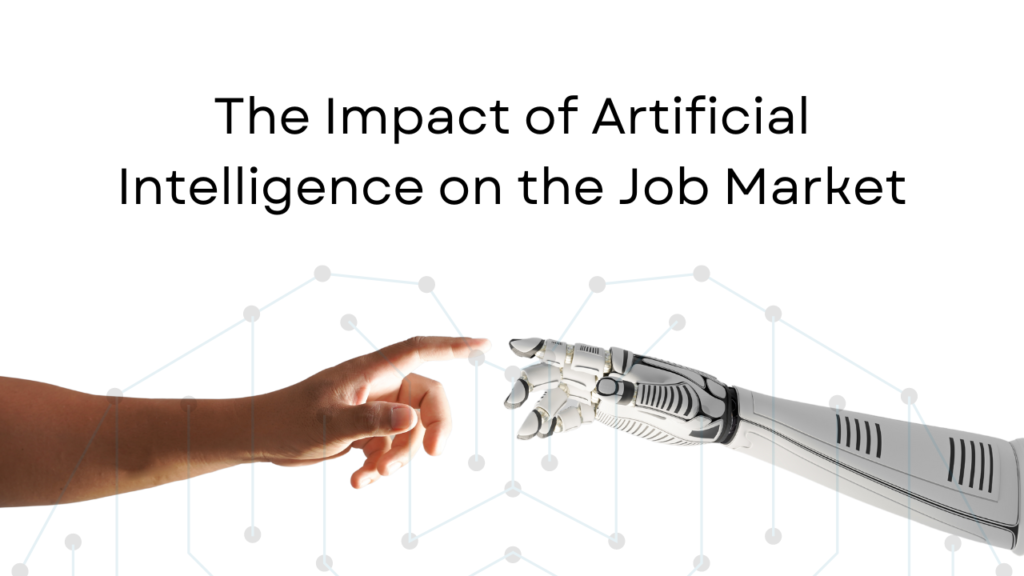
Artificial Intelligence (AI) has emerged as a transformative technology with the potential to revolutionize various industries and reshape the way we live and work. As AI continues to advance rapidly, its impact on the job market is a topic of great interest and concern. While AI has the potential to create new job opportunities and increase productivity, it also poses challenges and raises questions about the future of work. In this blog post, we will explore the impact of AI on the job market and discuss the opportunities and challenges it presents.
One of the most significant impacts of AI on the job market is the automation of tasks previously performed by humans. AI-powered systems, such as robotic process automation, machine learning algorithms, and natural language processing, are increasingly capable of performing routine and repetitive tasks with greater efficiency and accuracy. This automation has the potential to displace certain job roles, particularly those that involve manual or predictable tasks.
Jobs in industries such as manufacturing, transportation, and customer service are particularly vulnerable to automation. For example, self-driving vehicles have the potential to replace truck drivers, and chatbots can handle customer inquiries more efficiently than human agents. However, it’s important to note that while certain job roles may be eliminated, new roles that leverage AI technology will also be created.
The rise of AI also brings forth a host of new job opportunities. As organizations adopt AI technologies, they require skilled professionals to develop, implement, and maintain these systems. Jobs related to AI, such as data scientists, machine learning engineers, AI trainers, and ethicists, are in high demand. These roles involve designing and implementing AI algorithms, training AI models, and ensuring ethical and responsible use of AI.
Additionally, AI technology creates opportunities for job roles that complement AI systems. For example, as AI systems automate routine tasks, employees can focus on higher-value work that requires creativity, critical thinking, and emotional intelligence. Jobs that require human interaction, strategic decision-making, and complex problem-solving are less likely to be automated and may even experience increased demand.
Upskilling and Reskilling the Workforce
The widespread adoption of AI necessitates a shift in the skills required for the workforce. As certain job roles become automated, workers will need to acquire new skills to remain relevant in the job market. This shift underscores the importance of lifelong learning and continuous skill development.
To mitigate the impact of job displacement, it is crucial for individuals and organizations to invest in upskilling and reskilling initiatives. Workers can focus on developing skills that complement AI technology, such as data analysis, creativity, critical thinking, and interpersonal communication. Companies and educational institutions can play a vital role in providing training programs and resources to help individuals adapt to the changing job market.
As AI technology advances, it raises important ethical and social considerations. The potential biases in AI algorithms, data privacy concerns, and the impact on human dignity and autonomy are among the critical issues that need to be addressed. Ensuring that AI systems are transparent, fair, and accountable requires collaboration between policymakers, technologists, and society as a whole.
The impact of AI on the job market is complex and multifaceted. While automation has the potential to displace certain job roles, it also creates new opportunities and empowers workers to focus on higher-value tasks. Upskilling and reskilling will be key in adapting to the changing job market and harnessing the potential of AI technology. Additionally, addressing ethical and social considerations is crucial to ensuring that AI benefits society as a whole. By embracing AI as a tool for augmentation rather than replacement, we can navigate the evolving job market and shape a future where humans and AI work together harmoniously.
